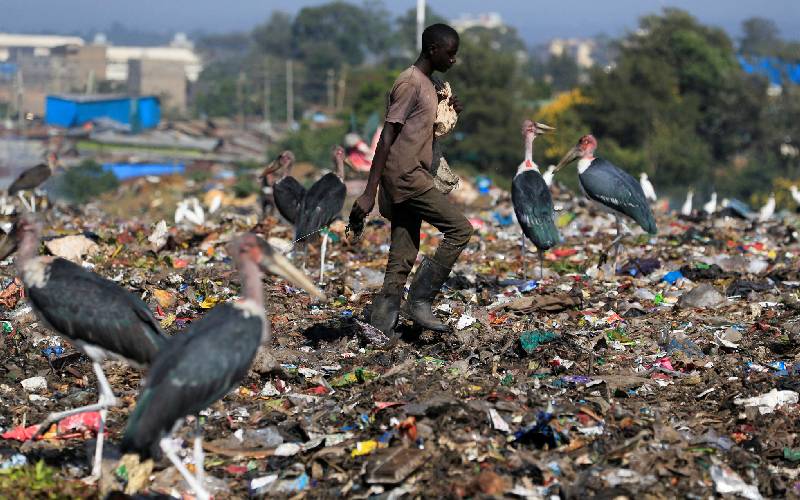×
The Standard e-Paper
Home To Bold Columnists

A scavenger is seen before sorting recyclable plastic materials at the Dandora dumping site on the outskirts of Nairobi, Kenya, February 26, 2022. [Reuters]
A short drive from the United Nations complex in Nairobi where talks on a global plastics treaty are taking place this week is Kenya's biggest landfill - a mountain of garbage, carpeted in single-use plastic.